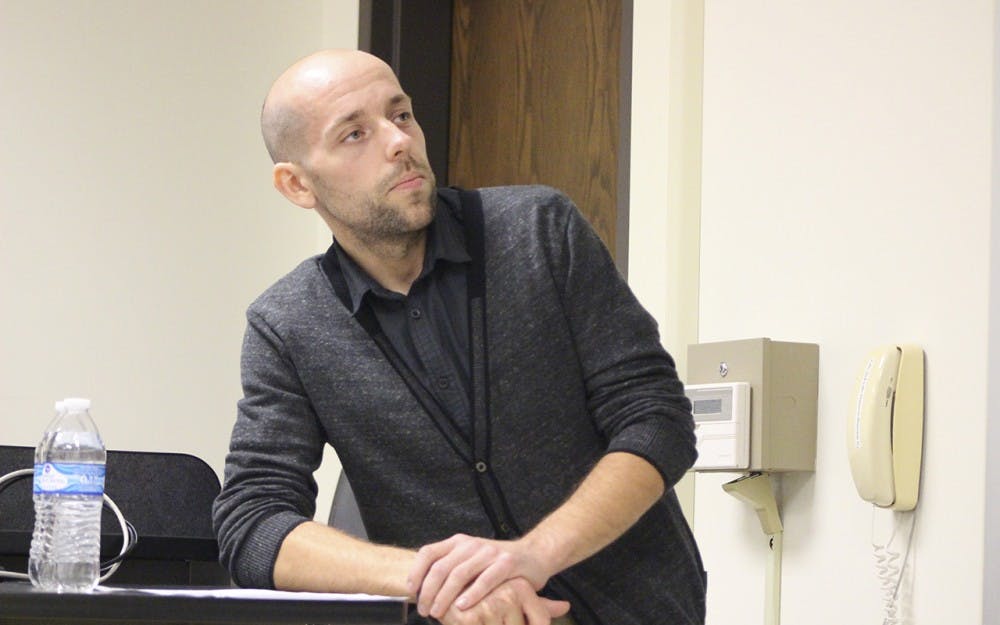Professor Konrad Werner defined anti-irrationalism and its perceptions in a talk at the Polish Studies Center in Woodburn Hall on Wednesday.
“Anti-irrationalism is not a position. It is rather a platform,” Werner said. “It is an attitude shared by thinkers on both sides.”
Werner is a professor at the Jagiellonian University in Kraków, Poland. Phenomenology and philosophy of mind and perception are a few of his interests. “I made my decision to study philosophy about 14 years ago,” Werner said. “I am interested in boundaries, exactly — in boundary questions, in boundary cases, in the most abstract concepts we use to organize this reality in which we live.”
Attributing the knowledge from philosopher Kazimierz Ajdukiewicz, Werner explained there are different types of rationalism. Specifically, the position stands in two different pairs: rationalism versus empiricism and rationalism versus irrationalism, he said.
“Anti-irrational platform is built up inside the domain of worldviews,” Werner said. “This is the pragmatic domain supposed to solve problems — scientific ones as well as social and individual ones.”
From what philosopher Leszek Kolakowski wrote, Werner distinguished this platform by targeting myths, which may distinguish the anti-irrational platform.
Joanna Nizynska, director of the Polish Studies Center, welcomed Werner’s ideas.
“This kind of fusion of a straight, philosophical perspective with some aspect focusing on specific culture is particularly precious,” Nizynska said.
Nizynska explained the center is invested in interdepartmental and interdisciplinary work. Werner’s discussion is one of many the department would like to host.
“We have to know what is knowledge to gain knowledge,” Werner said




